Source: SCMP (4/26/19)
Matteo Ricci: 16th-century Italian priest who tried, and failed, to convert Chinese to Catholicism is resurrected on stage
Matteo Ricci The Musical might not be the show Hong Kong wanted, but, according to those who brought it to the stage, it’s the one we needed. The priest was the first European to enter the Forbidden Palace in Beijing and is buried in the Chinese capital
By Fionnuala McHugh
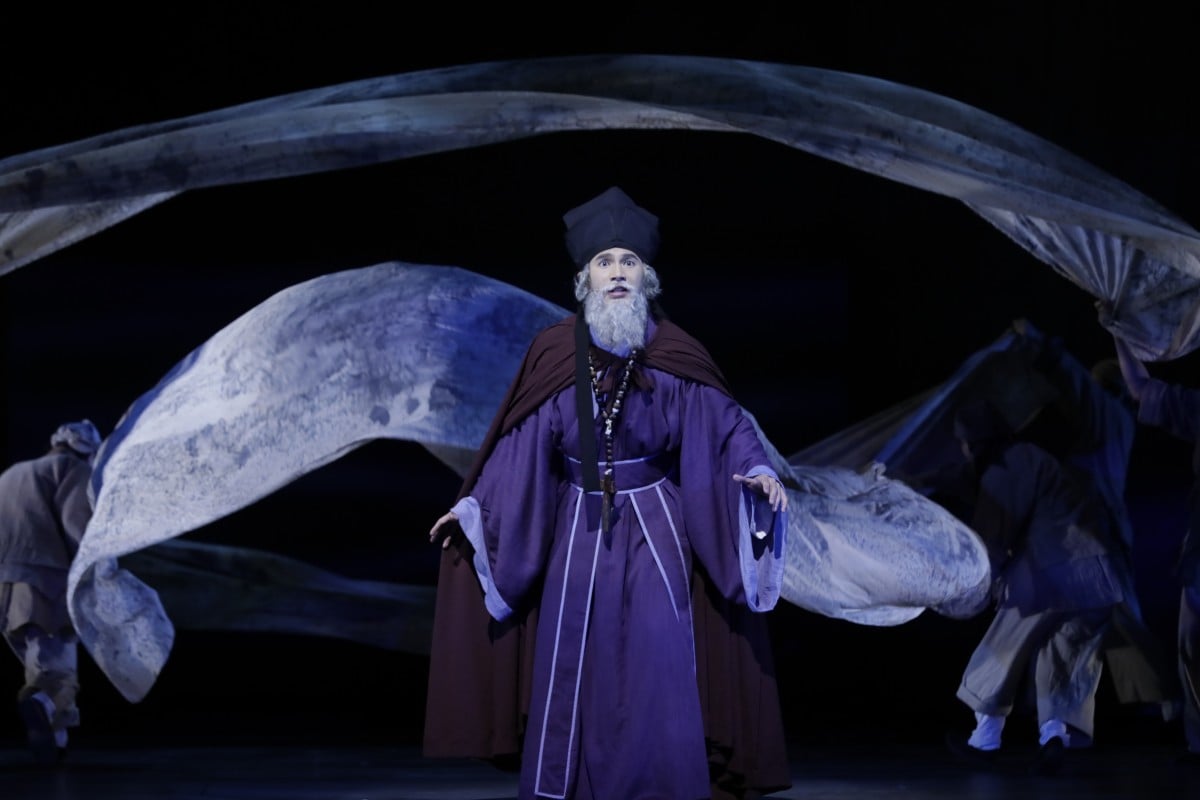
Jonathan Wong performs in Matteo Ricci The Musical, on April 19. Photo: Matteo Ricci The Musical / Cheung Chi-wai
On Palm Sunday, which this year fell on April 14, the first run-through of Matteo Ricci The Musical was held at Clarence Film Studio, in the depths of Shek Kong, in the New Territories. The following day, everything would shift to the Hong Kong Cultural Centre, in Tsim Sha Tsui, in preparation for opening night on Holy Saturday. As every Christian knows, Palm Sunday marks the day Jesus entered Jerusalem, after 40 days in the desert, to cheering crowds. By Good Friday, these fans are enthusiastically calling for his crucifixion. Three days later, he’s risen from the dead. It’s the scene-setter for a week of dramatic reversals.
Unless you’re Catholic, Chinese and/or interested in Ming-dynasty history, the name Matteo Ricci – or Li Madou, as he became known – will probably be unfamiliar. He was an Italian Jesuit priest who arrived in Macau in 1582, moved to Canton in 1583, gradually worked his way up through China and died in Beijing in 1610. He was the first European to enter the Forbidden City, where he taught the eunuchs how to wind up the clocks he’d brought as gifts for the Wanli emperor.
His fame rests on his intellectual abilities. He translated Euclid’s geometry into Chinese, drew the first world map that combined European and Chinese knowledge, and demonstrated sundials and celestial globes. A missionary, linguist and cartographer may not immediately suggest musical material. Still, as the success of Hamilton (an 18th-century American politician), Come From Away (7,000 passengers stranded in a small town after 9/11) and The Book of Mormon (self-explanatory) have proved, these are hummable times for unlikely topics.
“We know about Matteo Ricci from our history books,” says Heidi Lee Oi-yee, the show’s producer. “But we don’t know about his contribution to cultural exchange.” Lee is having a quick coffee in Clarence Film Studio’s canteen, which, as it resembles a cave and has a massive dinosaur skull outside, is like a setting for the dawn of creation (or Creation). In the circumstances, a 16th-century priest seems almost recent. What the production team hope to create is a show that makes him, and his achievements, relevant.
The prime mover of the project is another Italian priest, Father Giovanni Giampietro, who’s been in Hong Kong since 1958. Soon after he arrived, he baptised a nine-year-old boy called Damian Lau Chung-yan. Lau grew up to become a famous TVB actor; his face has been a familiar presence in homes across this territory for several decades. Father Giampietro has had a long-cherished dream to promote the intercultural aspects of Matteo Ricci’s life. Several years ago, he asked Lau to make it happen, which is why the actor is now directing his first musical.
When Lee, who has a solid background as a performing-arts manager, was hired in 2017, only the script – co-written by Lau, Sharon Au Koon-ying and Cyprian Chan Wai-shin – existed. “Damian read it to me and it’s very impressive,” she says. “He described all the scenes – there’ll be a dance here, this is when the ship is coming – all these pictures were already in his mind. I can tell he has a very strong mission.”
At the time, Lee was dissatisfied with her professional life. “I want to see a very different show in Hong Kong. I’ve been in this field for 20 years and I find it boring. People produce just for the sake of it, because they get money from the government and they have to continue. I want to be good. We have to think why we do it.”
Told that she’s sounding almost religious, Lee, who’s brisk, funny and not Catholic, becomes solemn. “Performing arts is my religion. But slowly I lost faith because of the egos in this field. And, suddenly, in this project, I found my source. I started to feel it again. Damian is not doing it for ego. It’s for Father, for Ricci, for belief.”
In the intervening months, she says she’s had one argument with Father. (Father Giampietro, who is fluent in Cantonese, has a Chinese name – Yan Po-tak – but he’s Father to everyone on the production team.) The Cultural Centre is usually difficult to book. That the show will be on over Easter week has nothing to do with spiritual timetabling and everything to do with April being a slower month on the arts calendar because potential punters are on holiday. As a cost-conscious producer, mounting a production in a prime venue, she wanted to price some tickets at HK$680.
“Father said, ‘You cannot do this, Heidi, you have to understand, it’s for …’” She hesitates, seeking the perfect translation. She takes my notebook and writes down some Chinese characters. (A friend later translates these, loosely, as “gospel spreading”.) “He said, ‘We have to attract more people who seldom come to the theatre, to know about Ricci, about the cultural exchange and about God.’”
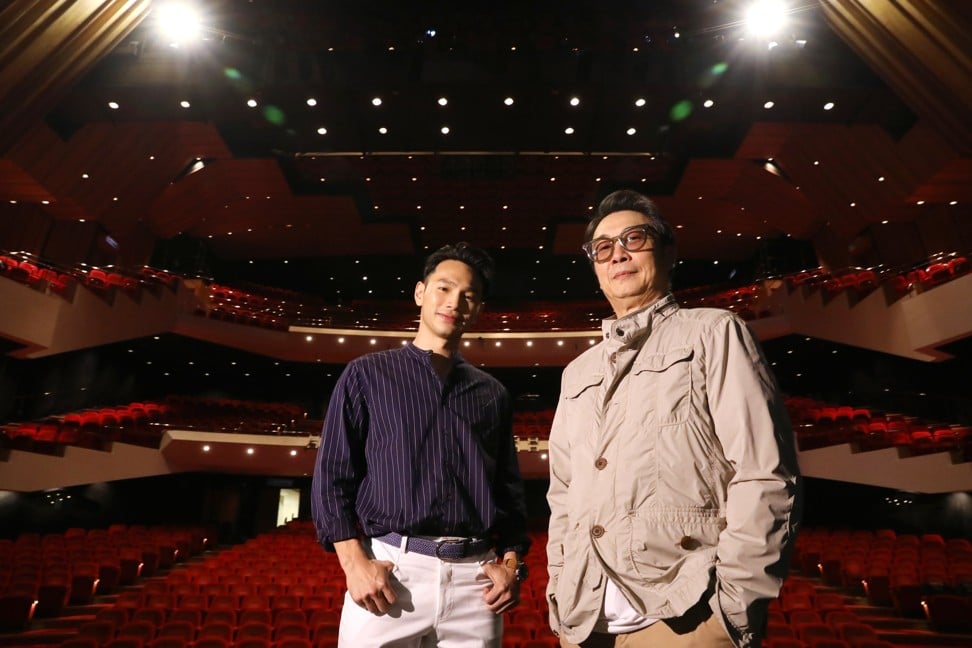
Wong (left) and director Damian Lau in the Hong Kong Cultural Centre’s Grand Theatre. Photo: K. Y. Cheng
As cost could be an issue, especially for families, those seats were sold at HK$425 through the parish churches of Hong Kong’s Catholic diocese and at HK$525 for everyone else. (Cheaper seats were also available.) There will be 12 performances in the 1,734-seat Grand Theatre: seven for parishioners, one for schools, four for the public. Three weeks before opening, they’ve completely sold out. You might think that would make life easier in these final rehearsals but Lee will hear no hint of slacking.
“You know, those people who will come – people who don’t usually go to the theatre – they deserve to see a very special, quality performance, very different from the normal, mediocre theatre environment,” she says. “I have such a great urge to help them create it. I can tell it will be a masterpiece!” How? “You know it, you can feel it. It’s the passion.”
The run-through – no costumes, no make-up, no lighting – is about to begin. Some of the cast who either haven’t given up cigarettes for Lent or aren’t Catholic are standing outside Studio 5, puffing in the rain. “It doesn’t matter if you are Catholic or not,” says Lee, of the team’s religious inclinations. “I haven’t counted. In this show we are united to do one thing.”
Rehearsals have been going on for more than four months but today is the first time as many as 43 of the 44 cast members have been gathered in one place. It’s an indication of the cast’s calibre – and, indeed, versatility – that the missing performer is Peter Chan Charm-man. He’s attending the Hong Kong Film Awards, having been nominated as Best New Performer for his role in Three Husbands, a category-III sex comedy directed by Fruit Chan Gor. (He didn’t win.)
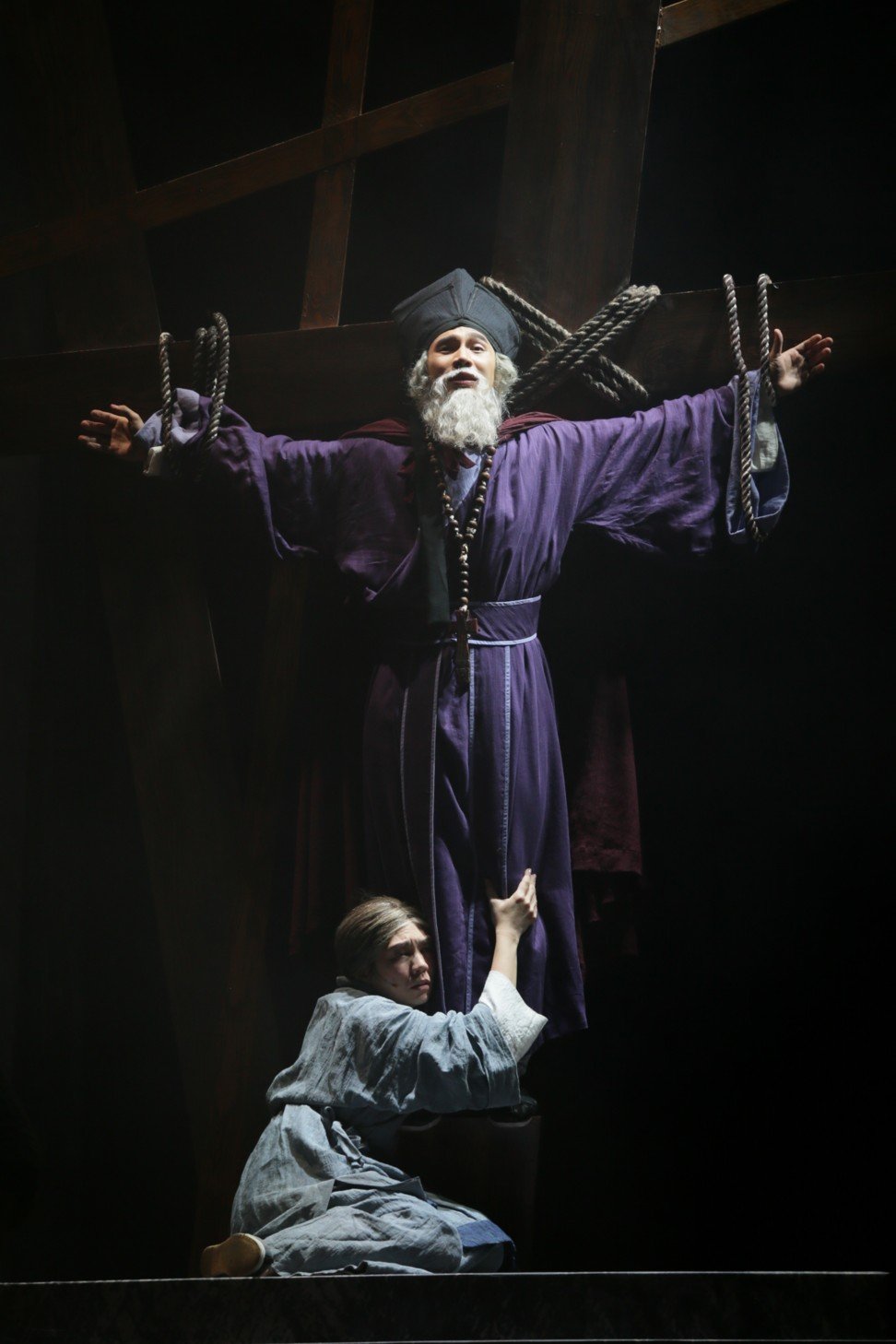
Wong and Kit Chan on stage. Photo: Matteo Ricci The Musical / Cheung Chi-wai
In a back room, deputy producer Cheung Chun-kin, who is an architect and is in a Catholic band called AMDG (an abbreviation of Ad Majorem Dei Gloriam – “for the greater glory of God”, the Jesuits’ Latin motto) is finishing a television interview with the Fountain of Love and Life ministry. The Chinese Catholic evangelical group is based in Toronto, Canada, and its mission, according to its website, is to offset the “culture of death” currently corrupting the young generation. The ministry is in Hong Kong for two weeks to follow the show’s fortunes. As we all agree, it’s not every day you get a chance to hear China’s most famous Jesuit burst into song.
As well as being the first foreigner to enter the Forbidden City, Ricci is said to have been the first European buried in Beijing. (Previous corpses were sent down to Macau.) His grave, and that of 62 other foreign missionaries, can be found in the unlikely grounds of the former Beijing Communist Party school. When I visited in 2010, the caretaker explained that when the school was being built, in the 1950s, premier Zhou Enlai had insisted Ricci’s tomb, along with those of two other Jesuits, should be preserved.
By then, though, the Boxer rebellion of 1900 had ensured that the probability of any Ricci remains lying in the good earth was about nil. But a thicket of steles, each carved with a dragon and a cross, still rose peacefully under the trees and someone had left fresh flowers on his grave. A nearby sign stated that the cemetery was named one of the National Important Cultural Relic Protection Units in 2006 and summarised Ricci’s achievements: “Besides preaching, he also introduced Western sciences on astronomy, calendar, geography and mathematics to Chinese people.”
The caretaker remarked that a few months earlier, on May 11, during a ceremony to commemorate the 400th anniversary of his death, four of the eight songs Ricci had written – in 1601, for what was probably a clavichord – had been sung. These must have been reinterpretations because the music has long been lost with only the Christian-themed lyrics having survived.
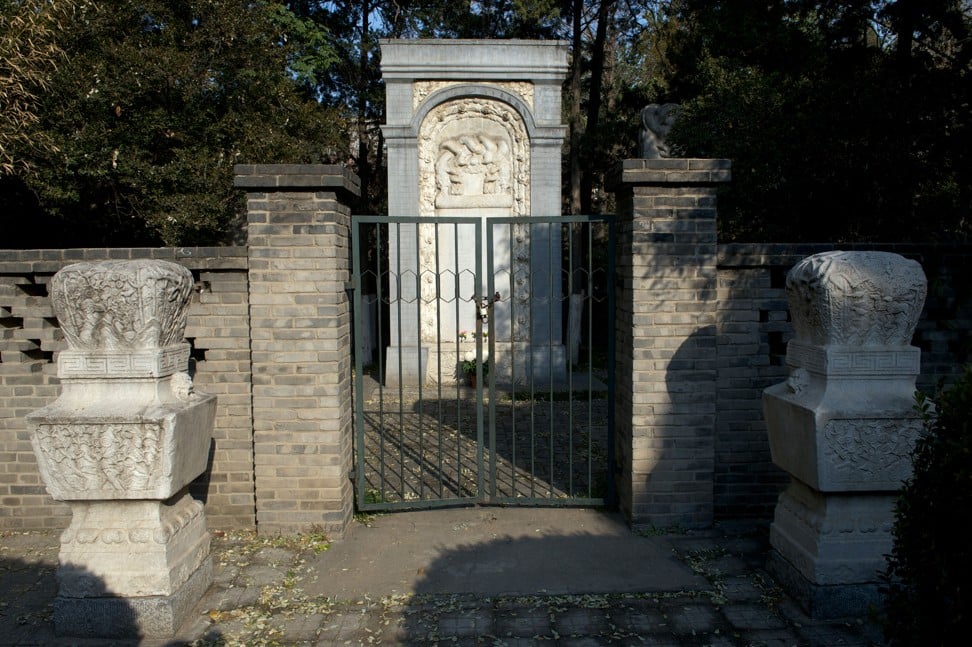
Ricci’s tomb, in Beijing. Photo: Alamy
Although the clavichord is featured on the poster for Matteo Ricci The Musical, it doesn’t put in an appearance. There is, however, a poignant moment when Ricci, played by Jonathan Wong Chee-hynn, turns to an erhu for solace.
Wong, who’s a well-known Hong Kong singer-turned-actor – and the son of Wilfred Wong Ying-wai, chairman of the Hong Kong Arts Development Council, among many other titles and appointments – has such a radiant face it’s like watching a light darting round the vast studio. (Lee whispers, “Such a blessing to have him.”) For 2½ hours during the run-through, he beams out a shining spirituality. When I tell him this at the interval, he replies, with becoming modesty, “It’s just sweat.”
The musical’s love interest is, of course, played by God, but there is a strong female role – Ricci’s maid, a fictitious character brought to life by Singaporean star Kit Chan, who sings of her master’s gentleness and respect. She has such a yearning, impassioned voice that if you heard her Canto-duets with Ricci while you were on, say, the Kennedy Town minibus, you’d assume the pair had a more earthly connection.
The script’s concerns, however, are focused on a higher plane. Anyone familiar with the story of Matteo Ricci will recognise its trajectory. There are travails at sea, travails on land (“Throw out the foreign dog!”), clothing issues (to ingratiate himself with locals, he went through a phase of dressing like a Buddhist monk) and a great deal of Confucian philosophy. The latter may come as a surprise but the essence of Ricci – the lovability of Ricci – was his struggle to reconcile the culture he’d come to respect with his Catholic missionary zeal.
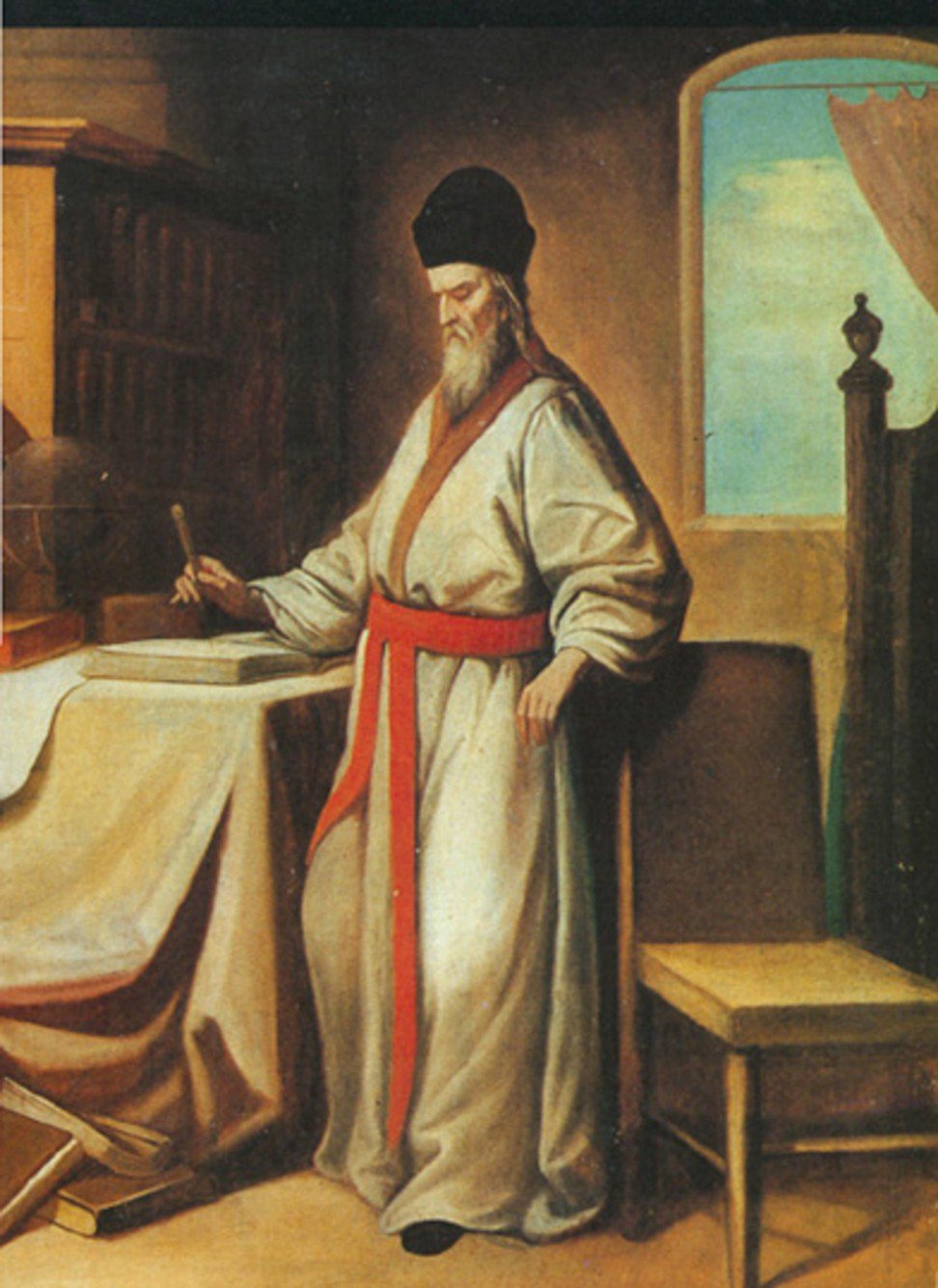
A painting of the Jesuit priest. Photo: Alamy
Internal disharmony isn’t easy to convey musically and not all of Ricci’s works are foot-tappers, although he did write a treatise called “On Friendship” that’s duly acknowledged in a particularly catchy number. The score, as it’s by film composer Henry Lai Wan-man, naturally has a stirring, cinematic quality. This is Lai’s first, and possibly last, musical. “My wife said it’s my ticket to heaven so I’d better do it,” he says. “But I wasn’t expecting this much work. I’m telling you, it is intense.”
There’s also plenty of dancing (although Ricci, who was attacked by a mob in Shaozhou, now Shaoguan, in 1592, walked with a limp for the rest of his life). Willy Tsao Sing-yuen, founder of City Contemporary Dance Company and the musical’s dance adviser, is at the run-through to assess standards. Ricci is his hero and he has visited the grave. “Actually, for a lot of people, Ricci doesn’t represent Catholicism only, it’s much more than that,” he says. “He’s a good example of trying to bridge different cultures.”
Tsao, often called the father of modern dance in China, is seated on a folding deckchair several places along from Father Giampietro, who has arrived bearing a palm in honour of the day. He sits at Lau’s right hand and watches the action intently. It’s impossible to guess his paternal thoughts until the moment when Ricci, speaking Latin, blesses a new convert who then makes the sign of the cross. Giampietro suddenly leans forward, as if he’d like to join in, and smiles.
By the interval, however, an unsmiling Tsao is shaking his head. “It needs a lot of work,” he says. “The shape is there but it needs polishing. It has to be more than just entertainment.”
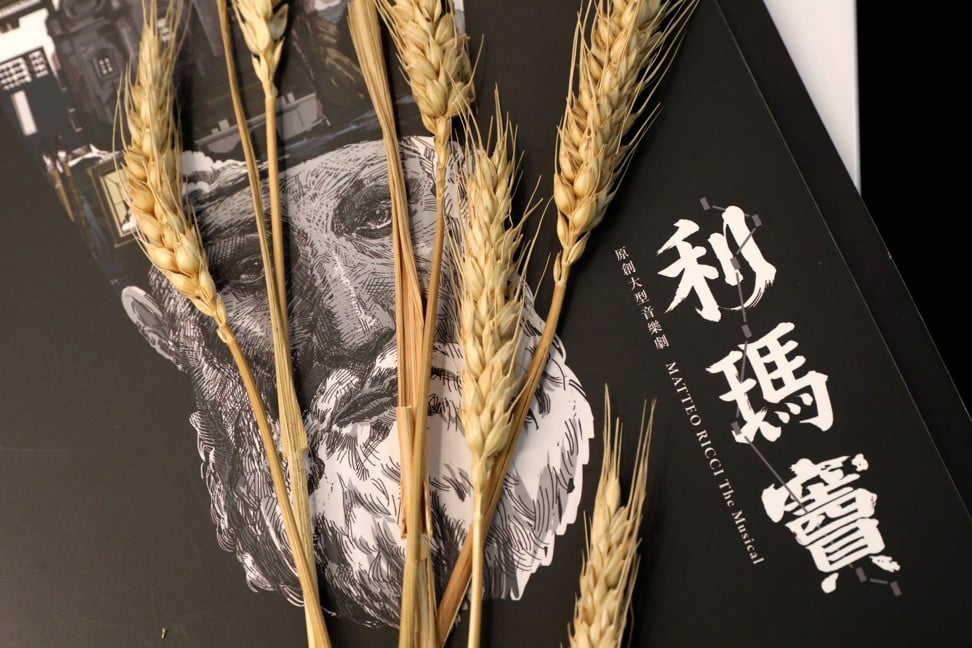
A brochure for the show and ears of wheat, which were handed out to the audience. Photo: K. Y. Cheng
Afterwards, the core production team heads out, with Lau, for dinner at a Thai restaurant in Kam Tin. Before we eat, grace is said, ending with the invocation, “Matteo Ricci, pray for us”. Although Ricci isn’t actually a saint, the papers for his beatification were lodged with the Vatican’s Congregation for the Causes of Saints in 2014 so it’s viewed as a mere matter of time. (It helps that Pope Francis is a Jesuit and, like Ricci, keen to have good relations with China.)
Lau is low-key, slightly abstracted, happy to let his young cohort chatter round him. He says he wants to spend the rest of his life navigating the journey of Matteo Ricci. There’s talk of shows in Macau, maybe performances in mainland China – which would require a miracle but, given the power of faith, I wouldn’t discount it – and a film. As Lee puts it, “Father is the compass, Damian is the pilot and we’re all in the same boat.”
At the end of the meal, in the now-deserted restaurant, Lau plays a voicemail from Jonathan Wong. The actor has rung to say how amazing it was to play Ricci at the run-through, that he felt he was a vehicle delivering lines from somewhere beyond himself, that he sensed an invisible presence holding him throughout. His voice sounds slightly overwhelmed by the experience.
The group falls silent, listening to the stream of passionate consciousness. Out of the corner of my eye, I can see a couple of police officers talking to the restaurant owner. They’re warning of criminal activity in the area and advising the installation of CCTV, Kam Tin being less pure of heart than the world created by Father.
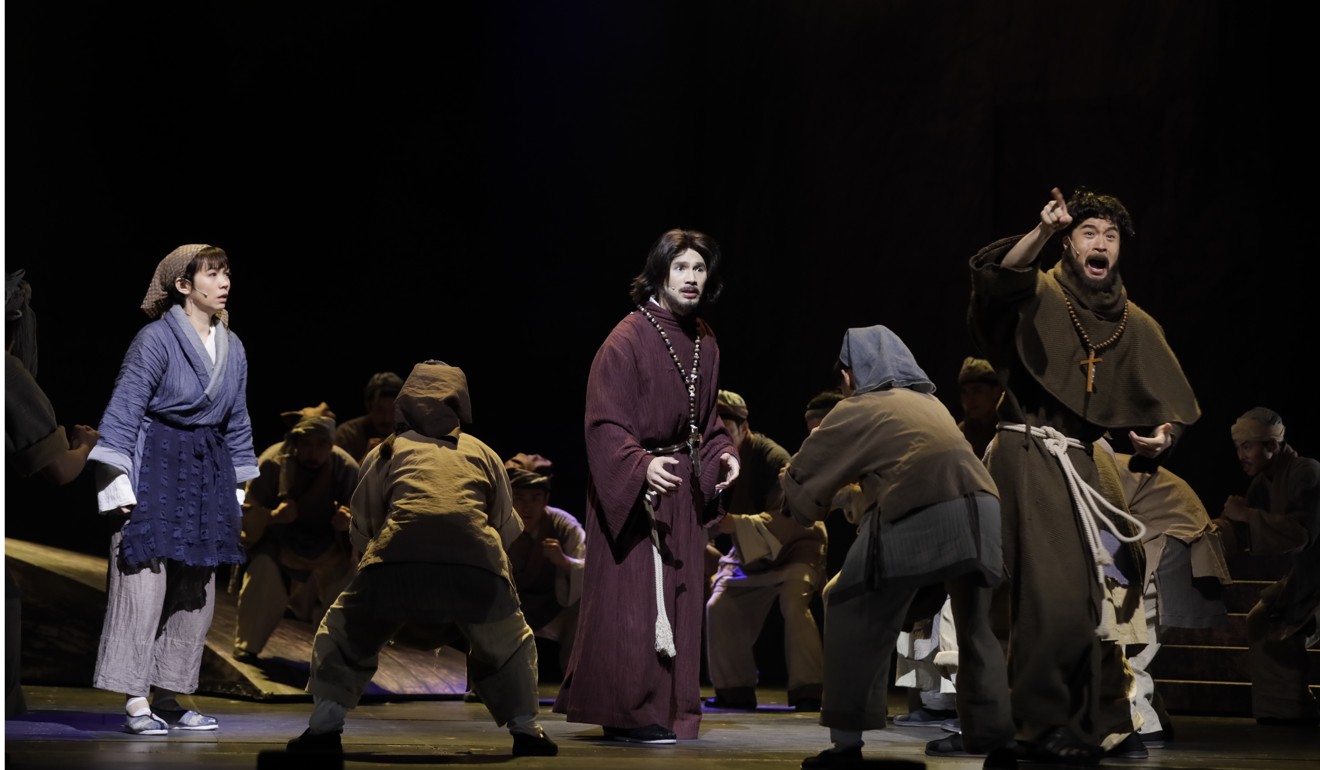
A scene from the musical. Photo: Matteo Ricci The Musical / Cheung Chi-wai
The story of Ricci is one of failure. He never fulfilled his dream of meeting the Wanli emperor. Worse than that, within a century of his death, his syncretic conversions – which allowed ancestor worship and Confucian rituals and were permitted by the emperor – were banned by the Catholic Church. As the musical begins with a brief prologue about the “Chinese-rites controversy” you know, right from the start, that Ricci’s work in China will come to nothing.
In 1951, when Giampietro joined the Pontifical Institute for Foreign Missions’ seminary in Milan, Italy, and Ricci had been dead for 341 years, people still hesitated to speak about him. “Each time I heard the name Matteo Ricci, there was a sense of something dangerous, something controversial,” says Giampietro, the day after the run-through. It wasn’t until the mid-1960s, after the Second Vatican Council, that Ricci was rehabilitated by the Church and embraced as a model of openness.
Now 85, Giampietro lives as Father Yan in a Kwun Tong Catholic primary school, with several other retired clerics, behind a bilingual door; in English the sign reads Priest Dormitory. He understands what it is to spend a life, and to anticipate a death, enfolded within another culture, just as Li Madou did.
He has been to the Beijing grave several times. He has even gone on a pilgrimage to Confucius’ home in Qufu, Shandong province, to consult the philosopher about their relationship to one another. (Confucius’ voice told him that if he had the spirit of Jesus, he belonged to Jesus; if he had the spirit of Confucius, then he was Confucian.)
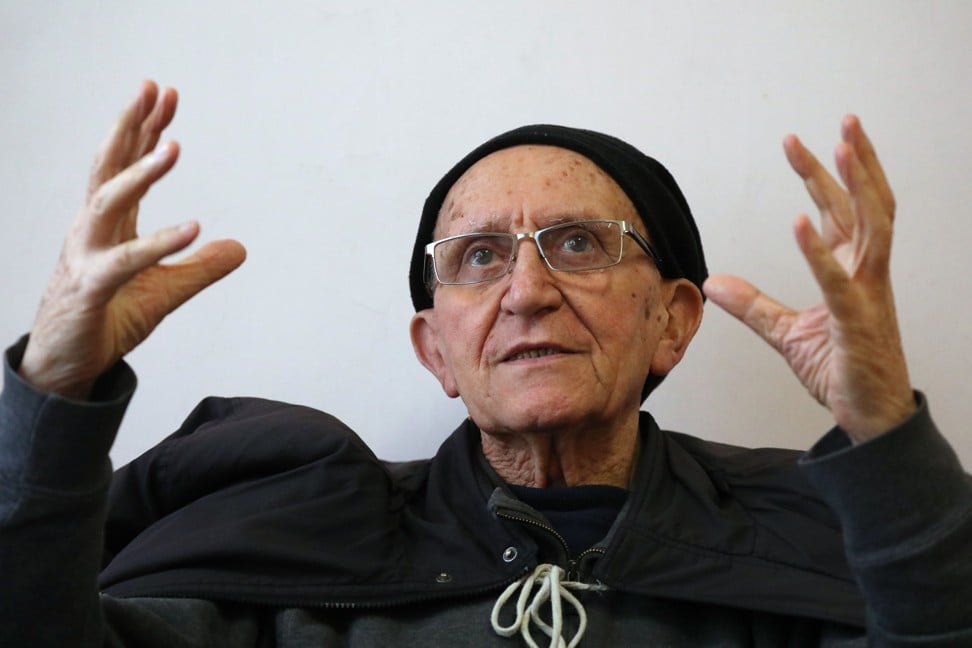
Father Giampietro. Photo: Nora Tam
When I ask why he smiled at the conversion scene, he remembers and says, “The Latin … This is not about converting! My responsibility is to do the sowing, not the reaping.” He wants the audiences “to have a sense of beauty, peacefulness, harmony, more joy, more acceptance of the difference”.
Throughout Holy Week, rehearsals run late into the night. “Tense” is the word Lee uses in one of her emails. On Holy Saturday afternoon, a storm of Biblical proportions suddenly smites the city. The veil of the heavens is rent by lightning. The production team agrees that even if a black-rainstorm warning is issued, opening night will go ahead and Ricci will live once more.
On the way into the crowded theatre, I meet Tsao who says that while the dancing still isn’t perfect, it has improved. The staging is excellent. It’s true that the second act could do with considerable tightening-up and the farewell waving of ears of wheat (with which we were all supplied to do our own sowing) has rather too much of a clap-happy, I’d-like-to-teach-the-world-to-sing 1970s vibe. But Ricci’s early struggles – the way he fights with himself, in the most literal sense – are conveyed with moving simplicity.
The biggest revelation on the night, however, is the lighting, by Michael Chien Lee-zen, who has just stepped down as dean of the School of Theatre Arts at Taipei’s National University of the Arts. At the unlit run-through he’d said that Lau wanted him to recreate the effect of Catholic paintings and there are clear visual references (the crucifixion, the Pietà).
Chien, who is Buddhist, learned about Ricci at school – “all the science stuff”. Maybe that’s why the most spectacular scene is when, through light projections, we glimpse Ricci’s brilliant mathematical mind, seeking to know what’s beyond human understanding. In the end, it melds with the stars, and becomes one with the universe.
The final, sold-out public performance of Matteo Ricci The Musical will be staged at 2.30pm on April 28, at the Hong Kong Cultural Centre.